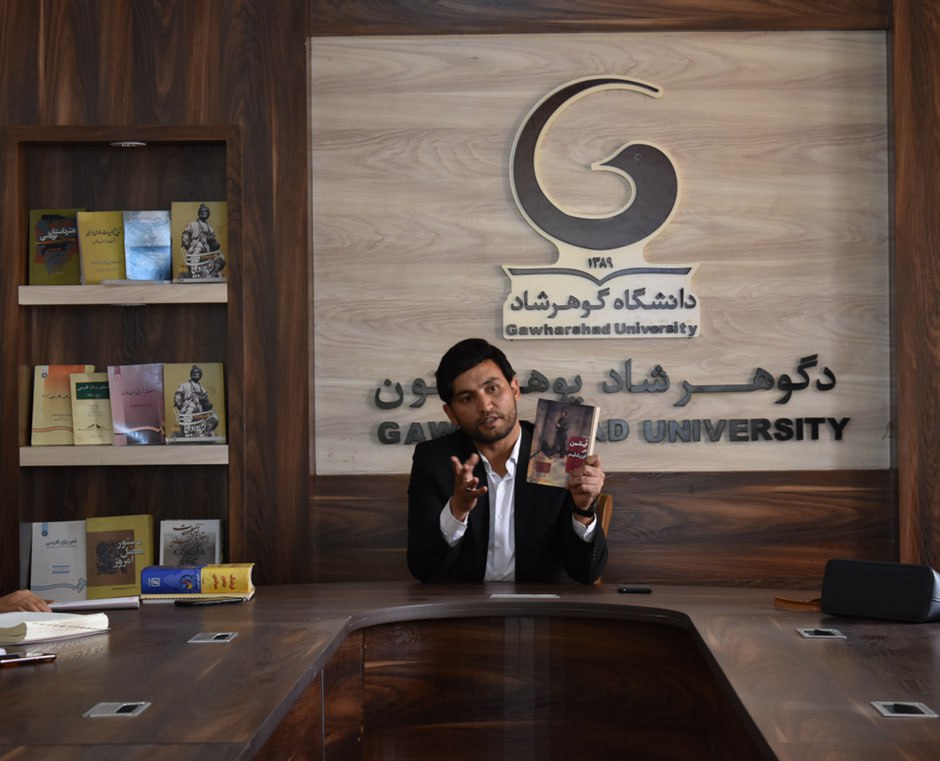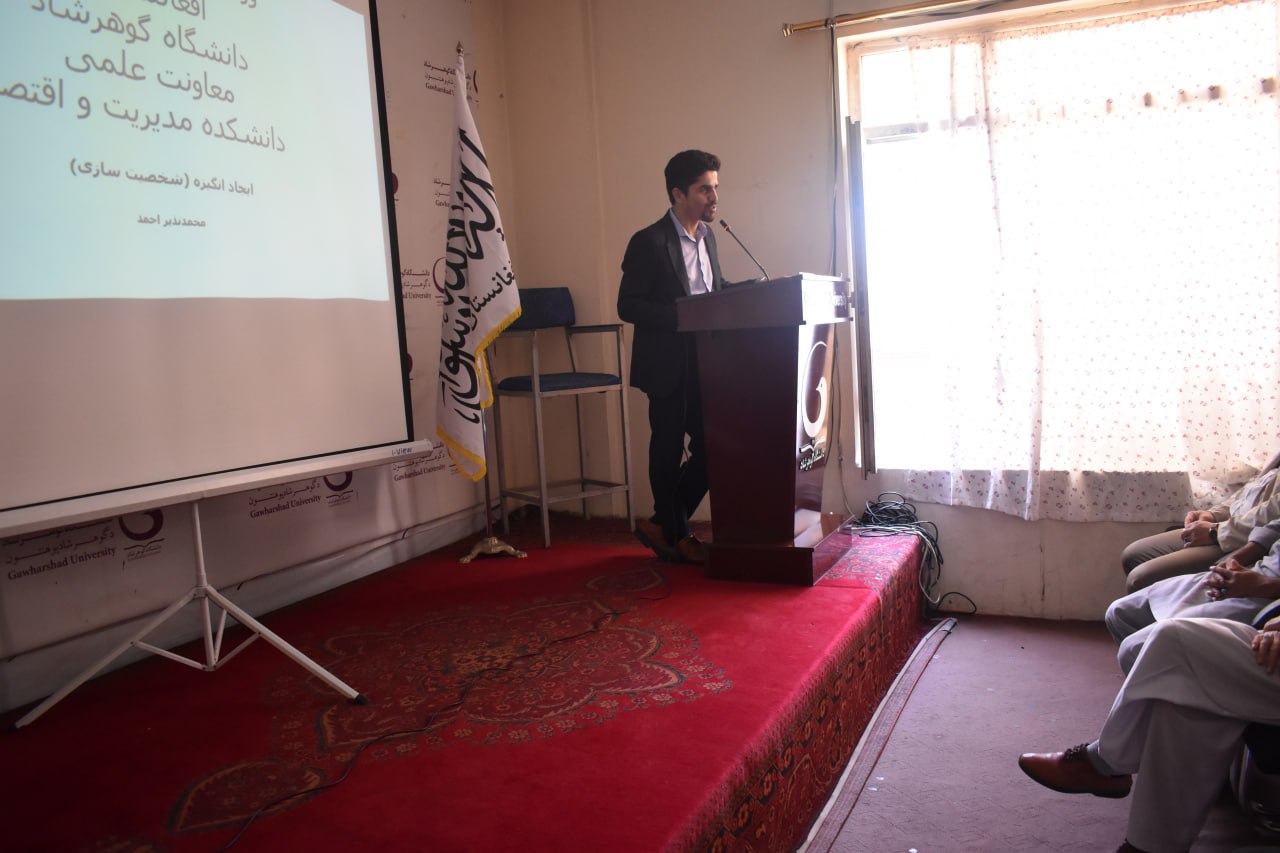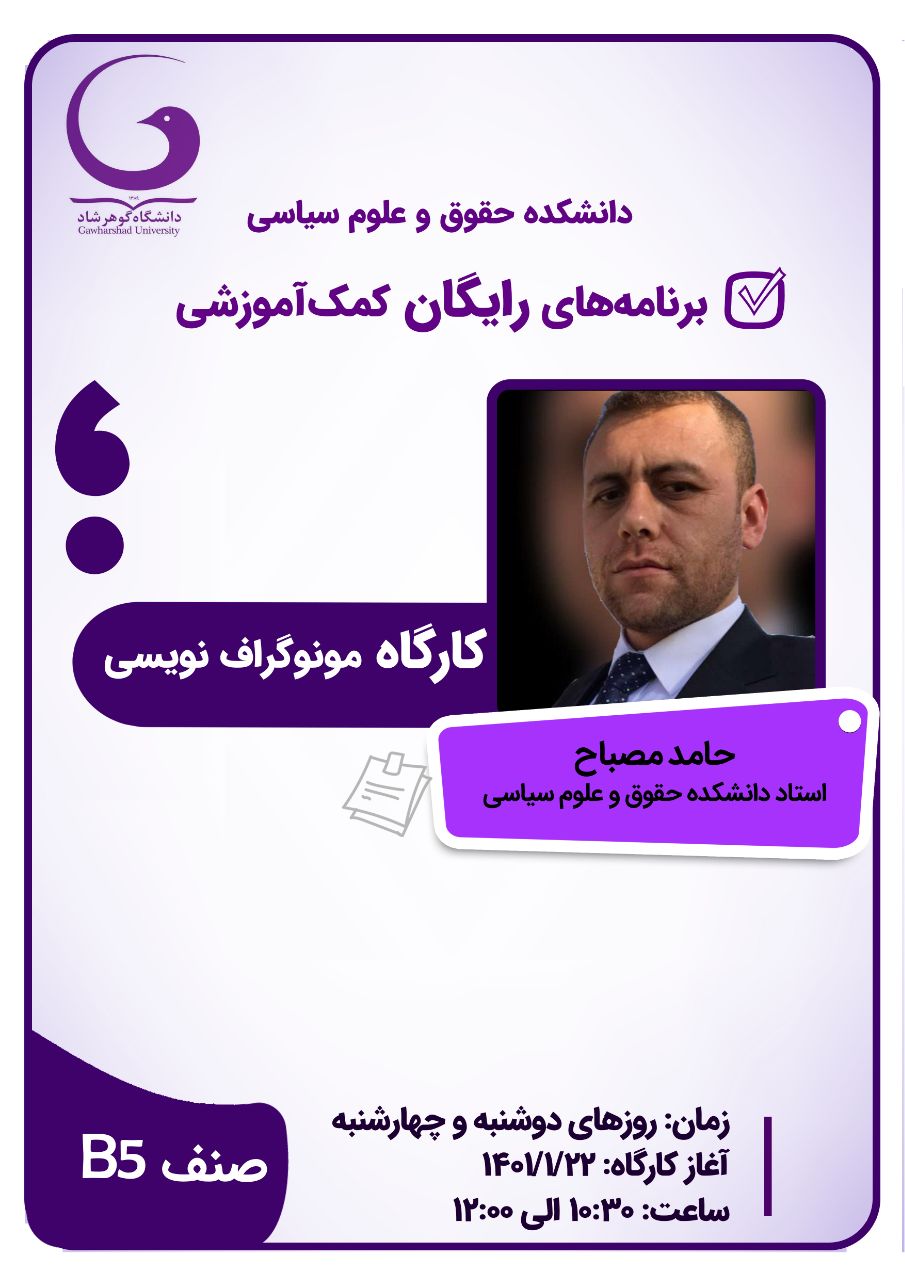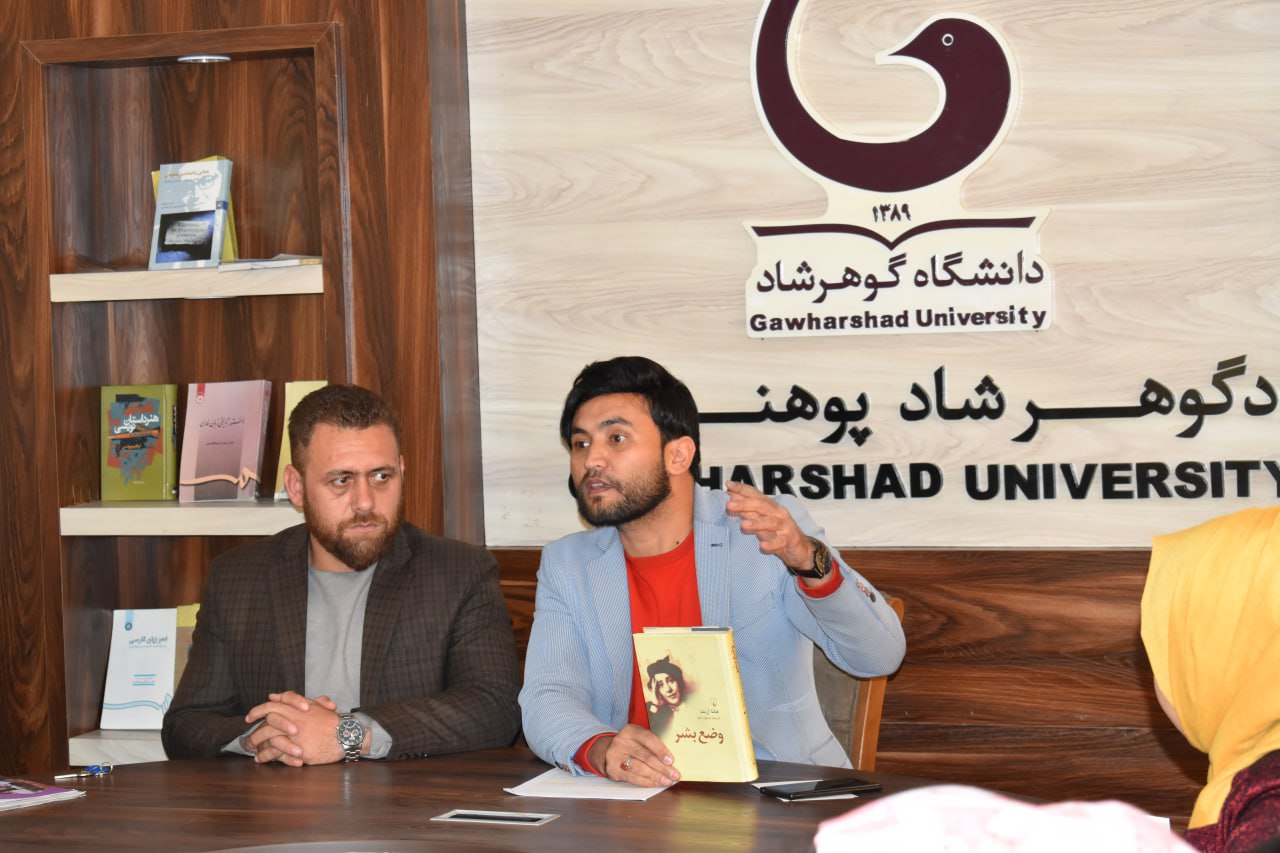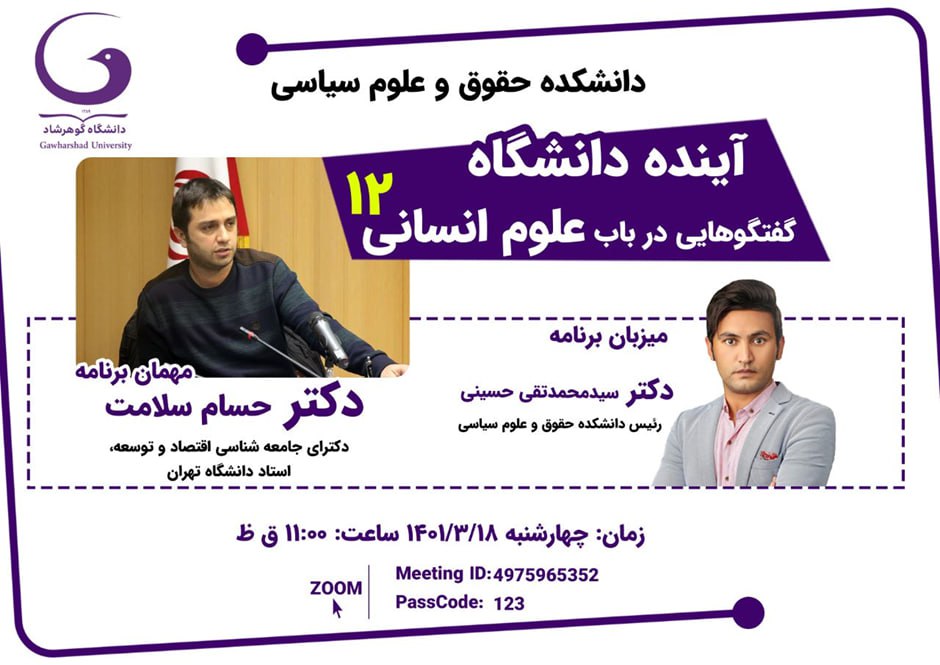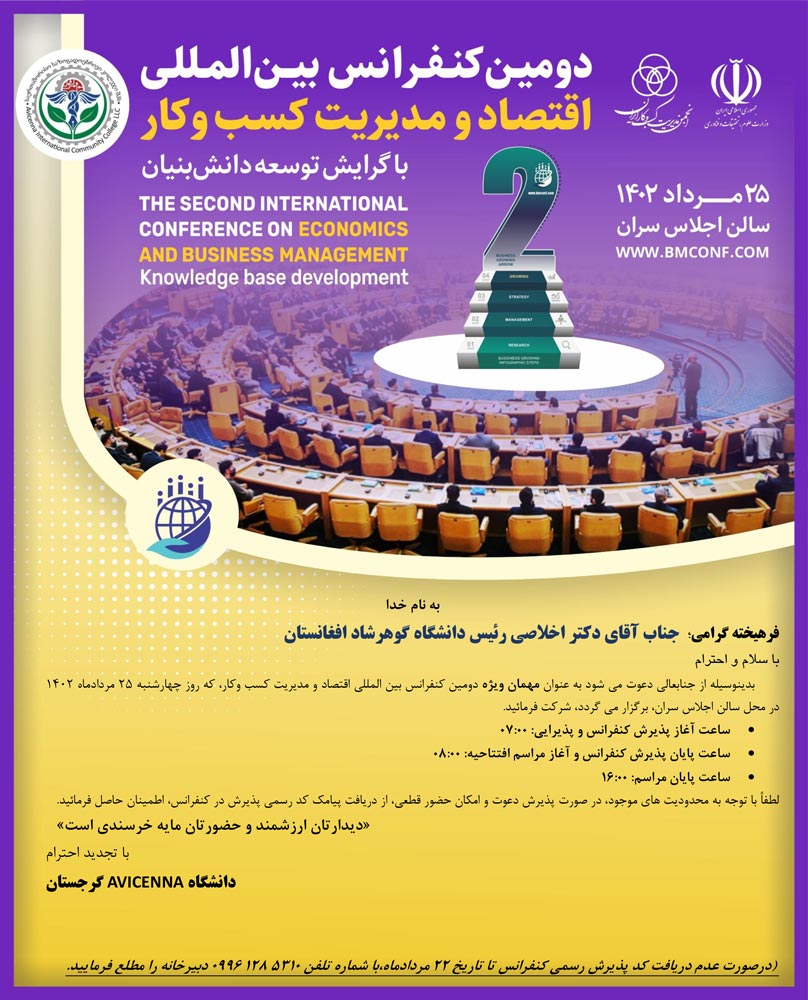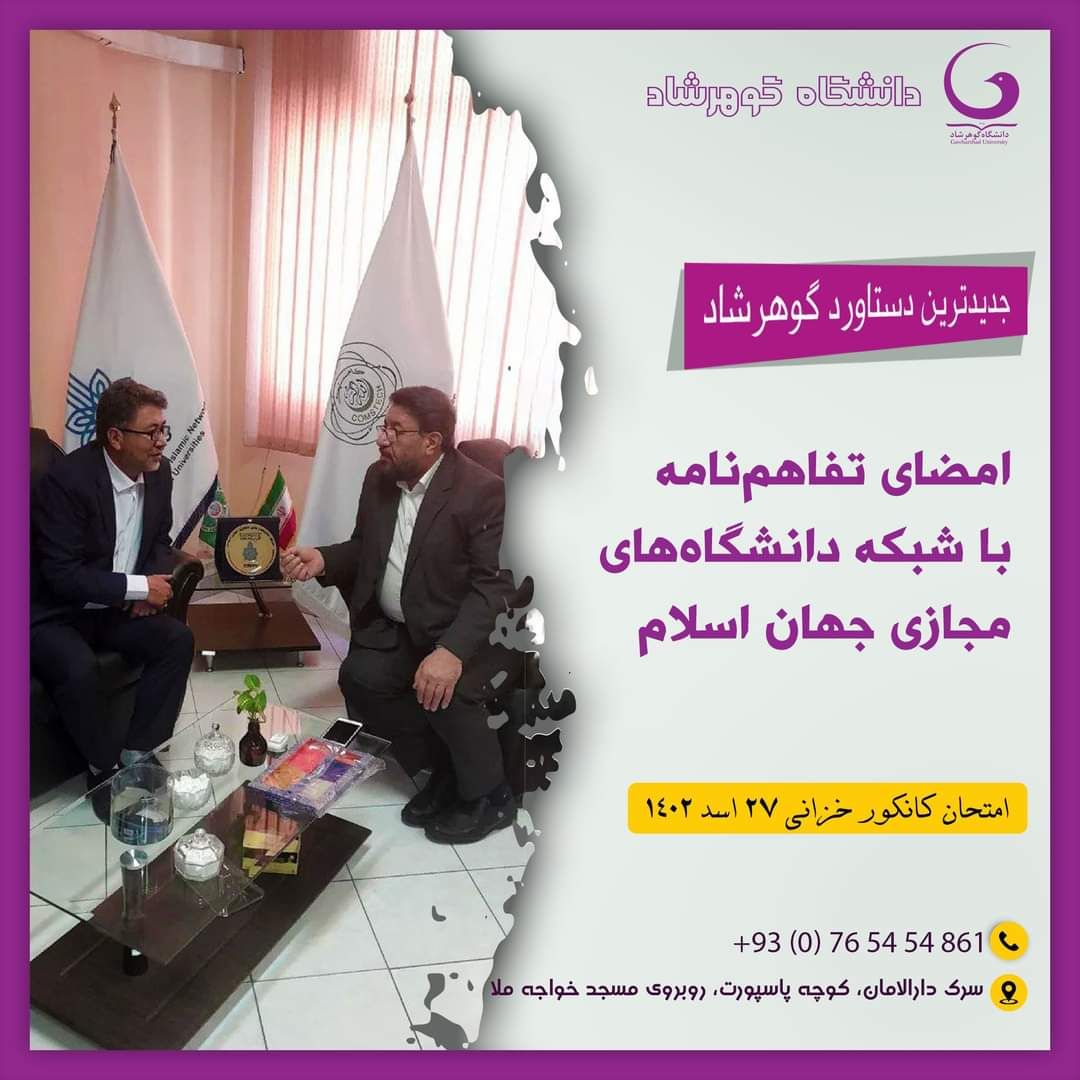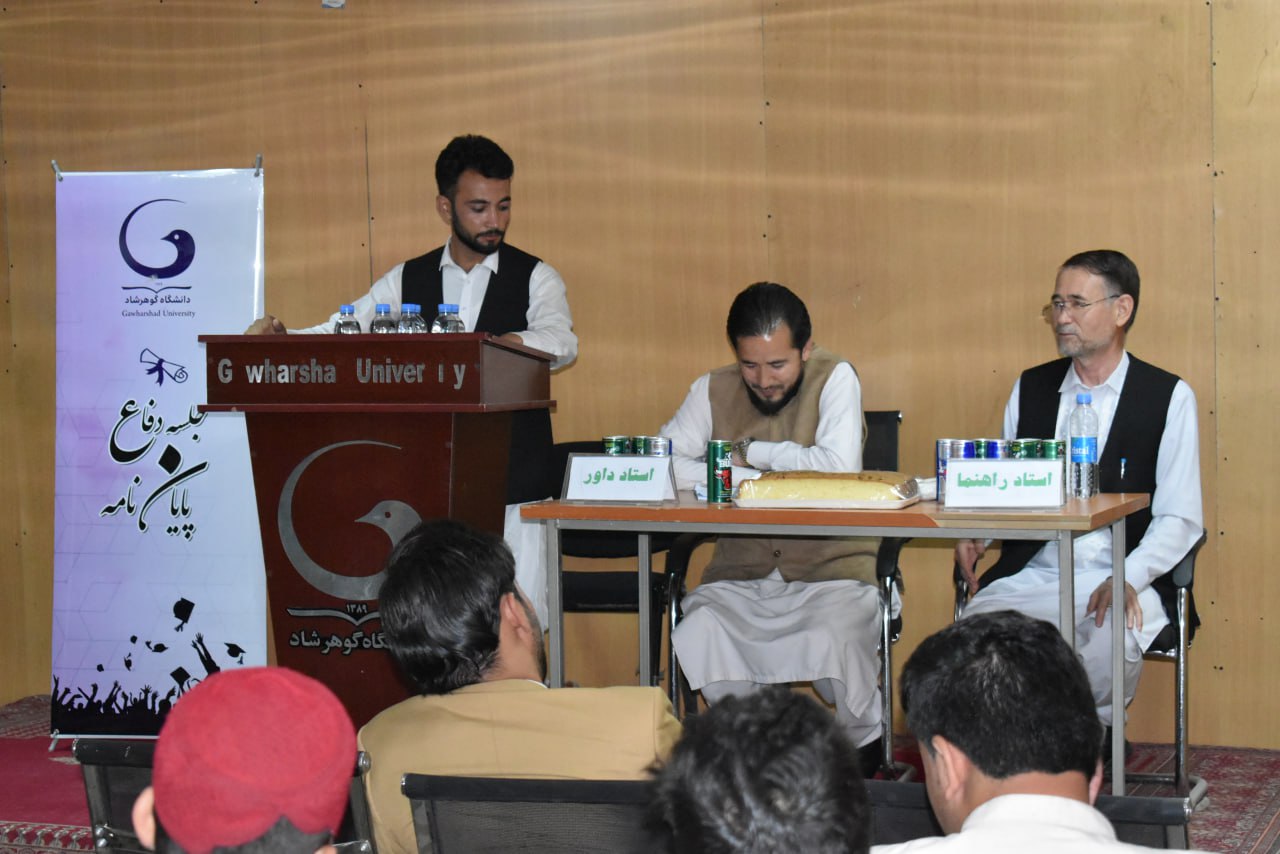All News
Dr. Seyed Mohammad Taghi Hossaini ; Vice chancellor for Scientific researches at Goharshad University, is pursuing an answer to the question: Can someone commit evil without being evil themselves? This difficult question leads Hannah Arendt, a German thinker, on a quest to find an answer in Jerusalem and the trial of Adolf Eichmann. Over fifty years have passed since the publication of "Eichmann in Jerusalem," a report on the banality of evil, and this report is still considered one of Hannah Arendt's most controversial works. Arendt believes that we prefer to be defeated by a monster born out of darkness rather than by an ordinary human being because in this way we consider ourselves less guilty. In this book, Arendt speaks about the emerging evil that originates not from individual wickedness but from the bureaucracy of modern times; horrific and widespread crimes that are supported by law, a corrupt power that guarantees the survival of citizens and provides a foundation for their professional and social progress but empties their existence of thought and conscience. In these circumstances, any ordinary person can commit a crime without even thinking for a moment about the meaning and horrific consequences of their actions or sitting in judgment of their own deeds. The interpretation that Arendt presents in her report about Adolf Eichmann is based on this idea and challenges the common assumption that figures like him are "monsters." Arendt believes that true justice requires complete disclosure, including self-disclosure; justice, from her perspective, is not just about determining punishment but also an effort to understand how political systems manipulate observers and even turn victims into accomplices. Arendt believes that becoming victims does not absolve people from examining their own role in tragedy or relieve them from worrying about becoming oppressors themselves.
The Faculty of Economics and Management organized a seminar entitled "Methods and Techniques for Motivation (Character Building)" for the students of Goharshad University in the conference hall of Goharshad University. In this seminar, Professor Mohammad Nazir Ahmad, a faculty member of the Faculty of Economics and Management at Goharshad University, presented topics such as motivation, personal growth, different personality types (extroverted and introverted personalities), positive and negative personalities, strategies to combat negative personalities, and the positive role of positivity in society and organizations for the participants. The main topics discussed in the seminar were: 1. Creating motivation in students. 2. Familiarity with different personality types. 3. Stress relief. 4. Overcoming disbelief and negativity. 5. Being positive and thinking positively.
The workshops of the Faculty of Law and Political Science (free of charge) are regularly held based on the needs of the students of Goharshad University and today's academic community in the country. In these programs, efforts are made for students to implement practical lessons in addition to learning theoretical lessons in order to achieve better results. To this end, after conducting surveys and examining the problems and weaknesses of the students, the Faculty of Law and Political Science has planned many educational assistance programs on a semester basis to help students flourish in their academic pursuits. The monograph writing training program was held by Professor Hamed Mosbah, a professor at the Faculty of Law and Political Science, with a large number of students participating. Professor Mosbah concluded this workshop by discussing the importance of research and writing monographs, various methods of monograph writing, topic selection, how to search reputable national and international websites, referencing techniques, and organizing monographs.
Goharshad University: Continuing its extracurricular programs, the university has now opened a center for writing. This center is supported by Freiburg University in Germany. Freiburg University is one of the prominent universities in Germany and has been collaborating with Goharshad University for several years. Initially, the German university conducted a specialized training course on writing for some of the professors at Goharshad University. The participating professors in this three-month workshop familiarized themselves with the latest writing and teaching methods. At the end of this workshop, a scientific article written by the participating professors was published on the official website of Freiburg University in Germany and several reputable European websites in English. Now, this center welcomes all writing enthusiasts. It is a place for nurturing and identifying talents who are eager to share their opinions on various dimensions at national and international levels.
Introduction to The Human Condition by Dr. Seyed Mohammad Taghi Hosseini, Deputy of Research and Development at Goharshad University: Hannah Arendt can undoubtedly be considered one of the most important thinkers of the twentieth century and the greatest female philosopher of this century (although she considers herself not a philosopher but a political theorist in her own interviews). Arendt is an exceptional figure in terms of the depth and breadth of her thinking, as well as her mastery of Western philosophical texts.
"The Human Condition" is one of Hannah Arendt's most prominent and influential works. It is a book full of unexpected perspectives that are more relevant to the present time in many ways. In this book, Hannah Arendt juxtaposes a life dedicated to action against a life dedicated to contemplation, inviting the reader to engage in further reflection on this subject. She describes the concepts of labor, work, and action and their place in the human condition, tracing their historical development up until our time and showing how our approach to a life dedicated to action has undergone various ups and downs and changes from ancient Greece to today.
"The Human Condition" is a philosophical and historical work that was first published in 1958. This book is an extraordinary and innovative work with unique insights that have become even more applicable and accurate over several decades.
In her research on the modern "human condition," Hannah Arendt focuses on human beings from the perspective of what they are capable of doing. The problems she addresses in this book are still gripping human society: the diminishing independence and political freedoms of individuals, as well as a contradiction that suggests that as our capabilities increase through technological and humanistic achievements, we have less control over the consequences of our actions.
"The Human Condition" is an exceptionally enlightening and profound work that introduces readers' minds to a new world of thoughts.
Arendt says: "By the term vita activa, I mean three fundamental human activities: labor, work, and action. They are fundamental because each corresponds to one of the basic conditions under which human beings have found life on Earth. Labor is an activity corresponding to the biological process of the human body, which involves growth, metabolism, and decay in the course of sustaining vital needs and necessities. The human condition is labor itself. Work is an activity corresponding to the non-natural existence of human beings, which does not have a place in the uninterrupted life cycle of [human] species and its irreversibility does not restore this cycle. Global work produces objects that differ from any natural environment in a certain way. Each individual life resides within its limited range, while this world itself is supposed to outlive and surpass all of them. The human condition is being a global worker. Action is the only activity that flows directly between humans without intermediaries such as objects or materials. It corresponds to the plurality of the human condition, corresponding to the fact that humans, not just one individual, inhabit and dwell on Earth. Although all aspects of the human condition are somehow related to politics, this plurality is specifically a necessary condition for any political life."
Conversations in the field of humanities have begun with the initiative of the Faculty of Law and Political Science at Goharshad University. These sessions, which aim to enhance the scientific capacity of students, hold discussions on important social, economic, and political topics. In this session of the series, Dr. Hesam Salamat, a professor at Tehran University, was present as a speaker. He began his speech by emphasizing the necessity of coming together and being united, quoting Hannah Arendt. He pointed out that many governments today fear unity and strive to keep people more isolated in their homes. Dr. Salamat started the discussion by talking about the future, stating that we must imagine and envision it. Imagination should be directed towards the future, and it requires the power of imagination. He differentiated between imagination and delusion, stating that utopian thinking is a form of critical thought; thinking about ideal societies becomes more necessary as the situation worsens; one must be realistic and seek the impossible. This was expressed by the French National Movement in 1368, and it should be pursued in this era. The discussion then shifted to universities; they are part of the development process in the West and were the first institution that traditional worldviews wanted to eliminate. They stated that questioning the possibility of saving universities as an institution that brings about modernity is essential. Dr. Salamat added that universities have several functions, and if these functions are taken away from them, they will have no future.
1. Embracing knowledge: It means to delve into the humanities as much as possible, inviting human sciences for the growth of society and collective thinking; it means inviting self-reflection, as the subject of humanities is humans themselves and how we have become what we are, the work of humanities is to think about roles.
2. Social construction: Building society; it means finding reasons for being together, the formations of being together. Social construction means creating a new world.
3. Nation-building: If a university has a mission, it is at the forefront of nation-building. Nation-building, despite ethnic, political, and religious differences; building an equal whole. Inclusiveness means unity in diversity.
In conclusion, they mention that we should read books that can explain and solve our own problems or issues. For example, when we read Marx, we should know what problem we can think about by reading Marx or what problem we understand. They conclude their speech.
The second International Conference on Economics and Business Management, with a focus on knowledge-based development, was held on 24th of August in Tehran. Dr. Akhlaghi, the president of Goharshad University, was invited to this conference. Goharshad University considers participating in international conferences as one of its main responsibilities and always strives to keep itself up-to-date by acquiring information from the latest practical data.
The signing of the memorandum of understanding between Goharshad University and the Virtual Universities Network of the Islamic World is a new development in strengthening scientific, standard, and Islamic education in Afghanistan. Goharshad University has always strived to provide the best educational opportunities for knowledge seekers in this land by establishing connections with international institutions. This time, by signing this memorandum of understanding, a significant step has been taken in this direction.
Faculty of Law and Political Science, Goharshad University; with the holding of thesis defense sessions, aims to promote and excel the graduate students from Goharshad University. In these sessions, students learn how to defend their theses in order to advocate for people's rights as a lawyer, and on the other hand, by being criticized by the jury professor, they learn a path for criticism and acceptance; so that in the near future they can be individuals who are patient and tolerant, and on the other hand, work hard to obtain their rights.
این جلسه با اشتراک جمع کثیری از استادان، ریاست محترم و معاونین دانشگاه و همچنین با حضور مهمان ویژه جناب دکتر عبداللطیف نظری معین مسلکی وزارت اقتصاد امارت اسلامی افغانستان با استقبال گسترده دانشجویان در تاریخ 3 ثور 1401 در محل سالن کنفرانس دانشگاه گوهرشاد دایر گردید.
مراسم افتتاحیه با تلاوت کلامالله مجید آغاز گردیده و به تعقیب آن دبیر علمی جلسه جناب دکتر مجتبی نیکزاد به صورت فشرده و مفصل به بیان اهداف، محورها و تبیین مسأله توسعه اقتصادی در افغانستان پرداختند. هدف این گفتمانها ارائه یک گفتمان بومی و ملی از مسیر توسعه افغانستان می باشد همچنین بیان چالشها، نقد نظرات و ایجاد فضای گفتگو و تعامل از هدف دیگر این برنامه می باشد. توجه ویژه به نقش نخبگان و اساتید و ارائه راه حلها و فرصت ها لازمه رهبری مسیر توسعه اقتصادی افغانستان است. پس از ایشان در ادامه جناب استاد دکتر محمدعلی اخلاصی رئیس دانشگاه گوهرشاد ضمن عرض خیرمقدم و خوشآمد گویی به حاضرین و مهمان ویژه برنامه جناب دکتر عبداللطیف نظری معین مسلکی وزارت اقتصاد امارت اسلامی افغانستان، به نوبه خود در مورد موضوع گفتمان سخنانی ایراد فرمودند و بر اهمیت موضوع توسعه اقتصادی در افغانستان و ابعاد مختلف آن تأکید نمودند. بعد از آن جناب استاد دکتر سید نقی موسوی رئیس دانشکده مدیریت در مورد ظرفیت ها و پتانسیلهای دانشکده مدیریت، اساتید و امکانات دانشکده به منظور همکاری با وزارت اقتصاد اشاره نموده و افزود که نقش نخبگان، سرمایهگذاری های هدفمند و دانشگاه در مسیر توسعه بارز و تعیین کننده میباشد. مهمان ویژه جلسه افتتاحیه جناب دکتر عبداللطیف نظری معین مسلکی وزارت اقتصاد در مورد سلسله گفتمانهای مدیریت و توسعه اقتصاد ملی و کارکرد های عملی وزارت اقتصاد گزارشی را ارائه نمودند و از برگزاری چنین گفتمان های استقبال کردند، ایشان در مورد زمینه های توسعه اقتصادی و پالسیهای دولت در این راستا توضیحاتی را بیان نمودند. و تعقیب آن به یک تعداد از سوالات اشتراک کنندگان جواب دادند و در پایان با یک جمعبندی کلی جلسه ختم گردید.
که گزارش مکمل آن در آینده نزدیک برای علاقمندان به اشتراک گذاشته خواهد شد.



Subcategories
Events
2719184
